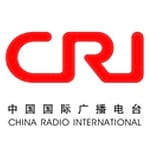
The RMG Recruitment Insider Survey is a quarterly project to help the public gain more insight into the recruitment market of different businesses in mainland China. The data is collected from more than 1,600 respondents who are working at ten different types of companies in ten cities and 20 industries. All the results collected come from HR managers, linemanagers or “C level” executives.
The data includes headcount, salary package, salary rise and employment demand. At the end of each quarter, we publish the results of the survey. In this updated second quarter survey, we have focused on the salary level of new graduates whilst most of the enterprises have finished their campus recruitment.
According to this second-quarter Recruitment Insider Survey where over 1,600 domestic corporations in the mainland of China participated, the recruitment demand in the second quarter has remained more or less constant with the previous figure received from Q1 (Q1: 92%; Q2:90.8%).
In addition, this quarter’s research has demonstrated higher salary rises compared with the research result from last quarter. The maximal salary increase range has risen from 0%-5% to 5%-10%.
Compared with the 9% sharp decrease in the recruiting rate from third-tier cities, the second-tier cities’ hiring demand has blossomed and they are supplying more than 10,000 job opportunities, reached a hiring rate of 93.1%. The data also illustrated a stable talent demand and wage level in the first-tier cities’. It is also shown in the Recruitment Insider that pharmaceutical & medical, logistics and internet sectors are on the automotive industry, over 14% of new recruits could have large pay rises (more than 20%).
On the other hand, the sales discipline keeps the highest demand for talent (63.4%). Marketing and product management are the other two of the top three job categories in demand.
Nonetheless, the talent demand in automotive and internet industries varies from other industries. The former had highest hiring needs in product departments and the later recruited most marketing professionals among all the positions they had hired (63.4% of automotive companies had recruitment needs for the product department and 49.9% of internet companies hired marketeers in Q2).
RMG Selection will keep on striving to deliver the best China-wide quarterly view on hiring. This Recruitment Insider Survey from the second quarter includes more than 40 charts regarding eight types of questions that aim to provide a clearer insight of the Chinese talent market.
As the founder of RMG Selection, Robert Parkinson comments: “The original intention of conducting this Recruitment Insider Survey is to record the current recruitment situation. “Other than the research which focuses on making speculations, we want to deliver the most authentic recruitment survey simply based on real facts.”
“From this survey we have seen a more formalised recruitment market and changes of recruitment demand among different job categories and cities in China.”
“Moreover, the hiring needs in the Chinese various manufacturing industries still remains at its lowest level, 20% of them do not have any new hiring positions”






